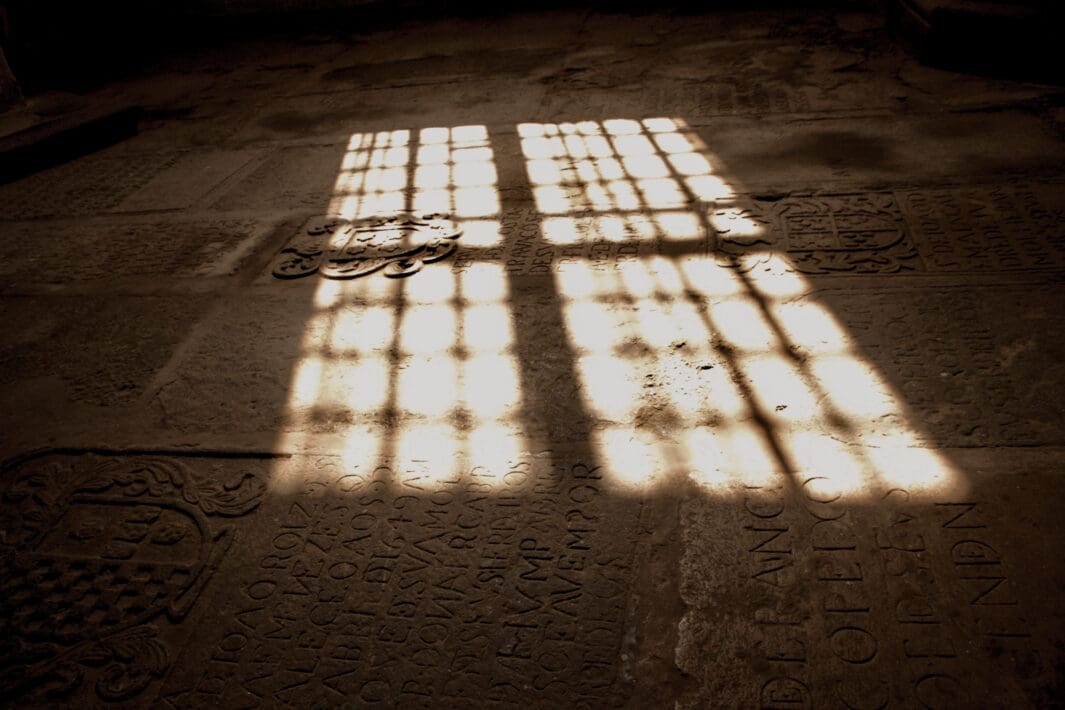
Andy and the men in discuss John’s warnings about false teachers and the final Antichrist. They also examine God’s view of time and how true Christians endure until the end.
These are only preliminary, unedited outlines and may differ from Andy’s final message.
I. Main Questions:
1. How does this section cause us to prepare for the future trials?
2. What is the significance of the fact that many antichrists come and then one antichrist is coming?
3. How are the true children of God protected from the lies of the antichrists/ antichrist?
4. How is a constant immersion in sound doctrine vital for the health of individual Christians and of the church?
II. Verse by Verse Questions:
1. What does John mean by saying “It is the last hour”?
2. How does knowing that the end of the world is imminent in light of eternity helpful for us?
3. What other verses are there in the New Testament that give us a sense of a long delay between the first and second comings of Christ?
4. What does John mean by “the antichrist is coming?” Note: in the Greek language, the prefix “anti” means “in the place of” or “instead of”, a substitute. In English, it means “against.”
5. What verses teach us of one antichrist who is coming? [See Daniel 7, 9, and 11; 2 Thessalonians 2; Revelation 13]
6. What does John also mean by saying “even now, many antichrists have come”? Jesus predicted that, saying
Matthew 24:24 For false Christs and false prophets will appear and perform great signs and miracles to deceive even the elect– if that were possible.
7. How does John’s statement “the antichrist is coming and many antichrists have come” show the pattern of “dress rehearsals” when it comes to the Bible’s doctrine of the end times?
8. What characteristic traits do the antichrists display?
9. How is the fact that there are many antichrists proof that it is the “last hour”?
10. What is the significance of John’s statement, “They went out from us but they did not really belong to us”? How does that help us to understand the nature of apostasy?
11. John says, “If they had belonged to us, they would have continued with us.” How does continuing in the faith demonstrate the difference between true/false profession of Christ?
12. How does that line up with the following statements from Jesus:
Matthew 24:12-13 Because of the increase of wickedness, the love of most will grow cold, 13 but he who stands firm to the end will be saved.
Matthew 13:20-21 The one who received the seed that fell on rocky places is the man who hears the word and at once receives it with joy. 21 But since he has no root, he lasts only a short time. When trouble or persecution comes because of the word, he quickly falls away.
13. How does John’s statement about the antichrists going out from among their own number line up with Paul’s warning to the Ephesian elders in Acts 20:
Acts 20:29-31 I know that after I leave, savage wolves will come in among you and will not spare the flock. 30 Even from your own number men will arise and distort the truth in order to draw away disciples after them. 31 So be on your guard! Remember that for three years I never stopped warning each of you night and day with tears.
14. What is the “anointing” John talks about in this section (see also verse 27)? How does it relate to the Holy Spirit’s work in a true Christian’s heart?
15. What does the anointing from God result in in the heart of a true Chirstian, according to verses 20 and 27?
16. In verse 21, John says it is specifically because of the anointing that he is writing. In effect he says, “You are all true Christians because of the anointing God gave you. By that anointing you know the truth. And that is precisely why I am writing to you.” If they already know the truth, why does he write to them?
17. Perhaps the anointing is not that we know the truth already but that we can recognize it when we hear it. Why is it a powerful gift from God to be able to know the truth when we hear it?
18. How does this anointing from God protect true Christians from the “spirit of antichrist” (see 1 Jn. 4:2-3)? How does the “truth” that the anointing teaches all true Christians relate to Jesus as the Son of God?
19. How do the antichrists deny Jesus as the Son of God?
20. What is the significance of John’s statement, “No one who denies the Son has the Father.” What does that say about all religious Jews who hate Jesus but who seek to worship the God of Abraham, Isaac, Jacob, and Moses?
21. What does John mean by “Whoever acknowledges the Son has the Father also?” Why is it true that, if you believe properly in Jesus as the Christ, you will of necessity believe properly also in the Father?
22. What does John exhort his reader to do in verse 24? How can we obey that command?
23. Do you think that what they “heard from the beginning” is the gospel? If so, how do we keep the gospel remaining in us day after day?
24. What promise does the gospel make to us in verse 25?
25. Who is trying to lead John’s hearers astray? How does it relate to the antichrists that went out from them?
26. Why is it true that the anointing means no one needs to teach them? Why then are there teachers in the church?
27. What is the difference between the real and the counterfeit anointing?
28. What exhortation does John give them in verse 28? Why will some followers of Christ be ashamed at the Second Coming of Christ?
Jonathan Edwards Resolution #19: Resolved: Never to do anything, which I would be afraid to do if I expected it would not be more than an hour before I would hear the last trump sound. (i.e. when Jesus returns.)
29. What does verse 29 teach about the true Christian life?
III. Summary:
John warns his followers about the antichrists that went out from their number to distort the truth. He expresses confidence that, because of the anointing they have, they will know the difference between truth and falsehood, especially when it comes to the Son of God.








